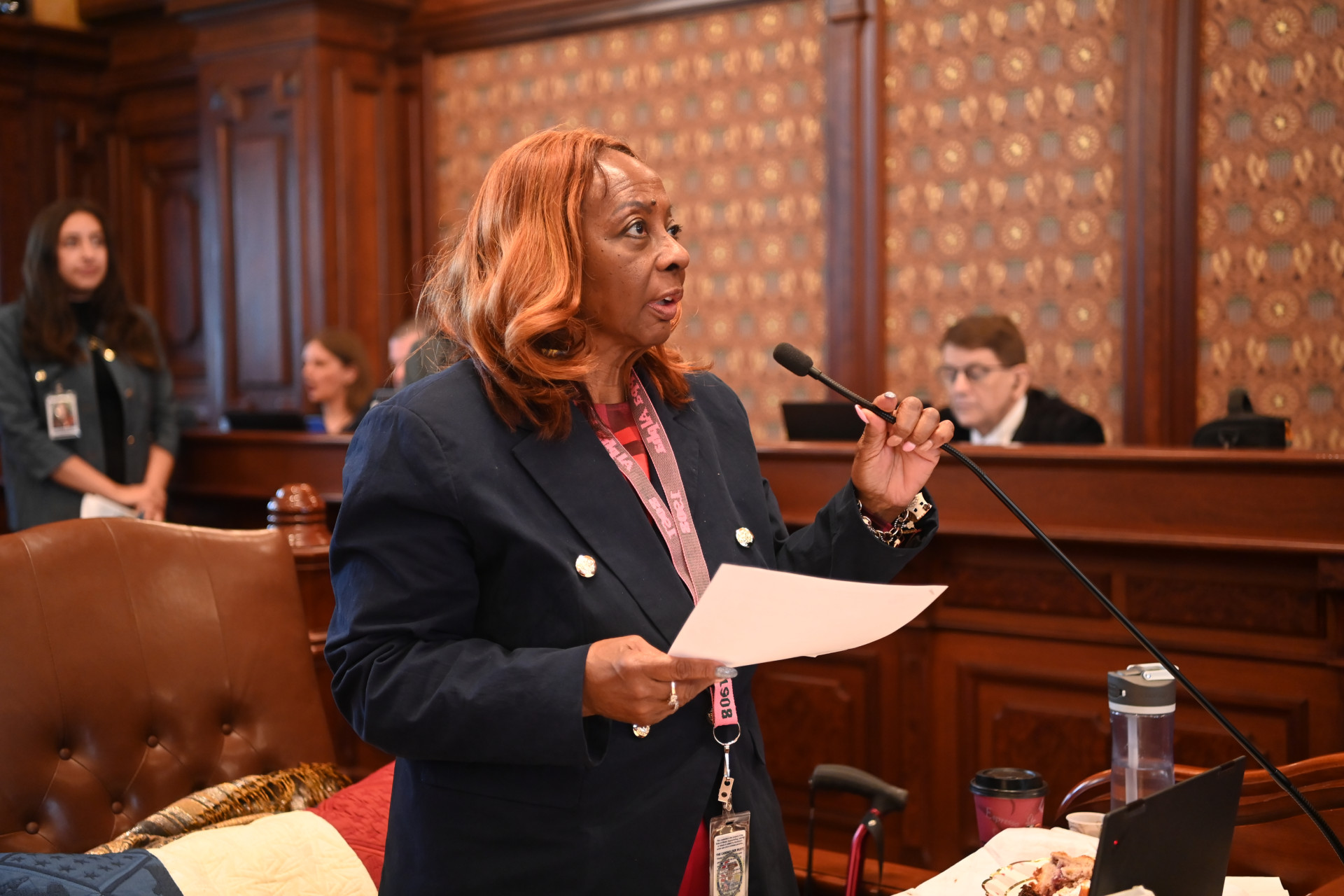- Details
- Category: Press Releases

SPRINGFIELD — To ensure patients have a chance to designate an emergency contact when seeking care, a new law spearheaded by State Senator Mattie Hunter will require hospitals to offer an opportunity to provide contact information starting Jan. 1.
“When someone is seeking care, their first thought is not telling hospital staff who their emergency contact is, it’s getting the care they need,” said Hunter (D-Chicago). “Now, patients won’t have to worry about remembering – our hospital staff will spearhead collecting important information they need, like an emergency contact.”
- Details
- Category: Press Releases

SPRINGFIELD — Further addressing health care gaps across Illinois communities, State Senator Mattie Hunter spearheaded a new law to close genetic counseling and testing disparities.
“Across the health care field, we continue to see many communities face a lack of providers, specialists or general care services, leaving residents without the care they need,” said Hunter (D-Chicago). “Neighbors are having to travel further or go without care because of these gaps.”
- Details
- Category: Press Releases

SPRINGFIELD — As many communities in Illinois still grapple with limited access to quality, healthy food, State Senator Mattie Hunter sponsored a new law aimed at looking into the effectiveness of efforts to reduce food deserts.
“Our residents are already facing rising grocery costs, workforce shortages and a lack of affordable housing – living in a food desert only hurts our neighbors further,” said Hunter (D-Chicago). “It is imperative that we work to identify solutions that provide lasting solutions to food deserts in Illinois.”
- Details
- Category: Press Releases

SPRINGFIELD — State Senator Mattie Hunter backed a property tax relief package that increases property tax exemption thresholds for senior citizens in Illinois.
“Our communities are already facing delays to their SNAP benefits, housing prices are increasing and many are facing a lack of access to quality health care. High property taxes should not be something our senior residents should have to worry about,” said Hunter (D-Chicago). “I was proud to support this legislation through the Senate as it provides the necessary relief needed to ensure our seniors are not burdened with high property taxes that could price them out of their homes.”
More Articles …
- Hunter invites community members to Nov. 4 virtual SNAP webinar
- Hunter supports measure increasing access to mental health and substance abuse treatments
- Hunter releases statement following the passage of comprehensive transit package
- Hunter calls for transparency following ICE activity in the 3rd District
Page 1 of 57

